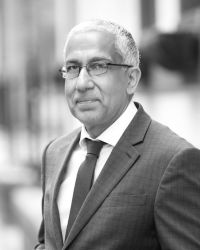8 Things You Need To Know About a Voluntary Police Interview

For many people, having never been in trouble with the police means that navigating a voluntary police interview can be daunting and overwhelming. We receive calls and emails every day regarding being asked to attend a police interview, so in this article we answer some of the most frequently asked questions.
Contents
What is a voluntary police interview?
There is a plethora of reasons why someone may be asked to attend a police station for an interview. Regardless of the reason, it is highly recommended that they have legal representation when speaking to the police or an investigating agency.
Police interviews typically take place when a person is under arrest and in custody or when they have been invited to attend voluntarily. The reason interviews are conducted is because the police or another investigating agency suspect that an individual may be involved in or has knowledge of a criminal offence.
Even if a person believes they have done nothing wrong, it is vitally important that they exercise their right to legal advice.
Do I need legal representation during a police interview?
The benefit of having a solicitor is that they can protect a person from incriminating themselves or unintentionally saying something that can be used against them at a later point. As well as offering continuous advice, a lawyer ensures that the interviewer complies with the Code of Practice governing police interviews, and that their client’s rights are protected.
It is important to understand that what happens in a police interview will play a crucial role in a person’s case. Providing thoughtful and measured responses during questioning is essential.
This is another reason why a person asked to attend an interview should engage a lawyer beforehand, as we may be able to obtain pre-interview disclosure, a summary of the allegations and evidence. This allows the person and our lawyers to have advance knowledge which assists to understand the purpose of the interview and the information or evidence the police already hold.
Early engagement allows us to prepare a person effectively, whether by drafting a written statement, determining which questions they are willing to answer, or ensuring they are in the strongest possible position for the interview.
Do I have to attend a voluntary police interview?
Yes, you can decline a voluntary interview. However, it is important to understand that there are potential consequences for refusing. If you choose not to attend, the police may consider it necessary to arrest you in order to conduct the interview under caution at a police station.
Can I provide a 'no comment' interview?
As you often hear in tv dramas and films, you do not have to say anything during questioning, essentially remaining silent. However, exercising this right may not be in a person’s best interest. There are several reasons why this may not be the right strategy, for example in some circumstances, remaining silent may mean adverse inferences could be drawn if the matter proceeds to a trial at court.
That said, there are situations where a ‘no-comment’ interview or providing a prepared statement can be beneficial, such as helping to avoid inconsistencies or reduce the risk of self-incrimination.
Each case is highly dependent on its specific facts, making it impossible to determine the best strategy without considering the complexities and nuances involved. This is another reason why legal advice and representation should be sought prior to attending an interview.
What to expect at a voluntary interview?
In most cases, interviews take place at a police station, although there are occasions where an alternative location can be agreed.
The interviewing officer will confirm that the individual is not under arrest and issue them with a formal caution, making it clear that any statements may be used in future legal proceedings. The officer will then go on to ask a range of questions, from general enquiries to more detailed questions aimed at establishing the individual’s knowledge or involvement in the matter under investigation.
How long do voluntary police interviews take?
The length of time a person can be kept at a police station is determined by the law. If a person has been arrested, they may be held in custody for up to twenty-four hours, although the police can apply to the Magistrates’ Court for an extension to that time. If a person attends a voluntary interview, the person is free to leave at any time. However, the police may arrest and detain them if necessary.
Everyone has the right to legal advice and representation during an interview. Even if a person initially waives that right, they can request legal representation at any point during the interview.
What happens after a voluntary police interview?
Following a voluntary interview, individuals are usually permitted to leave the police station while the police continue their investigation. The outcome of an interview depends on the information obtained, along with any information already in the possession of the police or investigating authority. As a result, the person may be invited for another interview, receive notification that charges will follow or receive confirmation that no further action will be taken.
An individual may remain a person of interest or relevant to a police investigation for a period of time after the interview. At KANGS, we frequently provide advice to clients with pre-charge representations to be submitted to the police / Crown Prosecution Service (CPS), aiming to present clear and persuasive information that encourages the swift conclusion of any investigation on favourable terms. This approach helps to minimise the anxiety and costs associated with court proceedings.
What choices do I have for legal representation at the police station?
Everyone is entitled to free legal advice and representation during a police interview. You can request legal support and a ‘duty solicitor’ will be provided. This solicitor is completely independent of the police.
Individuals invited to a voluntary police interview often choose to engage a solicitor and privately fund their assistance. This option offers significant advantages. As previously mentioned, a solicitor can request pre-interview disclosure, which may provide insights into the evidence the police hold or a summary of the questions they intend to ask. This important information ensures that the individual does not enter the interview unprepared, allowing time to discuss any allegations, receive legal advice, agree on a strategy and begin building a defence prior to the interview.
How we can assist
The team at KANGS have over twenty-five years of experience defending our clients’ rights during voluntary police interviews. The answers to the questions above explain why it is crucial to seek legal advice before participating in any interview with the police or any other investigating agency.
Our solicitors provide clients with legal support in investigations conducted by the police and many other authorities, including HMRC, Serious Fraud Office (SFO), Financial Conduct Authority (FCA), Competitions and Market Authority (CMA), and Trading Standards. If you are asked to attend a voluntary interview, we can communicate directly with the investigating officer on your behalf.
We work to secure advance disclosure of the questions likely to arise during the interview, enabling thorough preparation. During the interview, we will be present to protect your rights and offer clear, practical advice throughout.
Contact us using the details below and speak with our criminal defence solicitors who will be happy to assist you.
Tel: 0333 370 4333
Email: info@kangssolicitors.co.uk
We provide initial no obligation discussion at our three offices in London, Birmingham, and Manchester. Alternatively, discussions can be held through video conferencing or telephone.
Top ranked by leading legal directories Chambers UK and the Legal 500.






